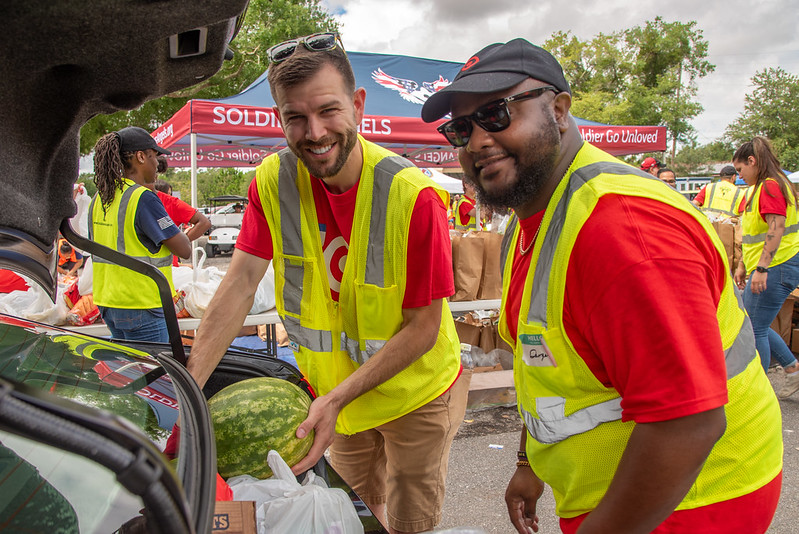
Veterans’ Options and Entry Points for Care
Veterans deserve to know their options when it comes to mental health care. VA operates the largest integrated health care delivery system in the country, with over 1,700 sites of care. Veterans can schedule appointments through our mental health clinics at VA medical centers across the country, but that’s not the only way to get treatment.
We also offer mental health care through our primary care clinics and our 300 Vet Centers, where combat Veterans can seek readjustment counseling anonymously in a casual, non-clinical setting. In places where we do not have facilities or services, we work with community providers to ensure Veterans receive the care they need.
Any Veteran in crisis should know that we have trained mental health professionals in our emergency rooms and answering the phones on our Veterans Crisis Line, where callers receive confidential support 24/7. Just call 1-800-273-8255, press 1; chat online; or send a text message to 838255. We’re here to help you.
Over the last few years, we’ve enhanced services and doubled our staff at the Veterans Crisis Line. Since the Crisis Line was created in 2007, it has received over 890,000 calls from Veterans, Servicemembers and their families. Over 30,000 of those callers were rescued from suicides in progress because our mental health providers were standing by to help.
New Staff Hired to Help Veterans
In order to increase access to mental health care for Veterans, Servicemembers, and their families, the Veterans Health Administration has successfully hired more than 1,600 additional mental health professionals. This means a ten percent increase in staffing for outpatient mental health services. As these clinicians are trained and begin to see patients, we believe these new hires will help us reduce the wait times for appointments. We will continue look at these access points closely to identify places where we need additional staff to better serve Veterans.
This week we also announced that we’ve hired more than 800 Peer Specialists and Peer Apprentices to improve access to mental health services. Peer Specialists and Peer Support Apprentices are a special group of Veterans and transitioning military personnel who have joined VA’s mental health care teams. They have successfully dealt with their own mental health recovery for at least one year. When Veterans can talk with fellow Veterans about these issues, we believe they are more likely to get the treatment they need and deserve.
Improving Timely Access for Veterans
Some recent reports focus on the time that new VA patients wait to be seen for mental health problems. We all agree that Veterans seeking a mental health appointment deserve to be treated in a timely manner and we are working hard every day to improve.
That is why we launched our hiring initiative in April of 2012 and established goals for patients to be seen within 14 days of their desired appointment date. This 14-day standard is one to which we hold ourselves, a higher standard than other health care systems.
It’s also important to know that Veterans who are in ongoing care comprise the majority of our appointments, about 90 percent. More than 95 percent of these appointments are scheduled within the time frames agreed upon by providers and patients. New patients, or patients who are seeking care for a new problem, represent less than ten percent of our mental health appointments, and all patients are screened to ensure emergent needs are met immediately. About two thirds of new patients are seen within 2 weeks – we know we need to improve to better serve our new patients.

Access for Veterans to mental health care can always improve. We understand and appreciate the frustration some Veterans feel when we are not able to immediately meet their needs and our providers feel the same frustration. At the same time we can say that we are headed in the right direction and dedicated to taking care of America’s Veterans as compassionately, efficiently, professionally and quickly as possible.
Dr. Mary Schohn is Director of Mental Health Operations for the VA’s Veterans Health Administration
Topics in this story
More Stories
Soldiers' Angels volunteers provide compassion and dedication to service members, Veterans, caregivers and survivors.
Veterans are nearly three times more likely to own a franchise compared to non-Veterans.
The Social Security Administration is hoping to make applying for Supplemental Security Income (SSI) a whole lot easier, announcing it will start offering online, streamlined applications for some applicants.








I am one of the older vets that have been trying to work through VA’s Here to Help 12 step System. Each time I get to where I feel comfortable with the Doc, they transfer out, and leave me hanging. I think after six times I will call it quits. The new system the VA is using maybe helping the younger vets but not me. Guess I need a very different style of help. And I am to a point that I will never trust the VA therapist system. So I stand alone and care for myself, voice my dismay of the new system, and move slowly forward, I think. See the care i seek is not just for me but for my wife too. Too bad , too hurt by the system and will no longer seek the answers from the VA mental health Department. just wonder who else has had this experience
the va does everything, including fabricating lies to dishonor the vet. ptsd means nothing. the va should be abolished. i havcebeen fight 42 years with chronic ptsd due to war in vietnam. my mos is in combat engineers. my recrds since 1977 diagnose me with severe ptsd due to combat in vietnam. the military cannot produce records pof spec ops missions and thus the va denies my claim.they disgust me and they will do anything including ruining your good name to deny benefits for ptsd. thyink about that the next time you see the wandering homeless vet on the street…the va put them there.
I appreciate V.A. Is “here to help me get the care I need”. Now I wish to give back. I am applying for Peer Specialist positions in Florida. Thus far I am not getting any consideration. It does not help that MANY of the Peer Specialist positions have been recalled because they were originally filled by NON-Vets … and/or folks who did not meet other criteria such as mental health diagnosis or honorable discharge.
I EXCEED the minimum qualifications. And I know my Fed Resume is primo … I have been called for interviews! And I have been offered positions with several V.A.’s … Non in Florida. Why?
EXPERTISE ~ Military Vet: Army, Air Force & Marine, with service in the Middle East
EXPERIENCE ~ Human Services: Peer support & advocacy, Vocational counseling, Rehab counseling
EDUCATION ~ Certified Peer support specialist (Veteran), AND Masters in Rehab Counseling
mental health comunications between a patient and therapist are suposed to be confidential. why is the verbal conversation between my therapist and i included as part of my physical health record ?
Although I am receiving mental health treatment from the VA, I am still fearful of receiving treatment from the VA because I believe that the VA and the military are so closely connected. I believe that the VA is more concerned about the reputation of the military than the VA is concerned about affording me mental health treatment. That aforementioned fear has long caused me suffering and pain.
I can truly identify with how you feel as for many years I felt that VA mental health services were trying to paint a picture of me as an urban Black dope fiend instead of truly listening and asking the right questions to help me with my issues. I am now being compensated for depression yet I am still not being treated fairly or the wheels of the VA grind slowly. I do however find it very interesting that there are those in the VA receiving bonuses when I myself cannot get an answer about an earlier effective date. For me, sometimes writing to the White House does not do any good. What is it that a Veteran must do to feel fairly treated, not feel as if the VA Medical facilities across the country will still not treat us in the authoritative culture we were immersed in as soldiers? I do not know, but I do know that I continue to write letters and follow up on claims……..I filed a tort claim for negligence and the VA has some how found a way to justify my claim as or without merit. I was given an injection of Botox mixed with water instead of saline solution and the VA went “my bad” and I did not receive any more treatment for several months until I could be sure that I was in competent hands. I realize that the VA is also a training ground, but if someone is negligent enough (or as far as the VA is concern, not negligent, but mistakenly injecting people with the wrong solutions and justifying it somehow, well…….)
I am just ranting now as I feel that I still continue to be treated with great disservice, which is why I am fighting now to get into VA service as a peer to support those who are in this system and assist them in avoiding the pitfalls I went through!
yes my friend and in your records you are a hopless dope fiend…that is exactly how the va operates. good luck.
Why is it that V A Won’t honor the Physical Problems Of PTSD.I’ve been Suffering Throat & Stomach problems since korea. but no medical records as war zone only treats bloody wounds, broken bones that break through skin